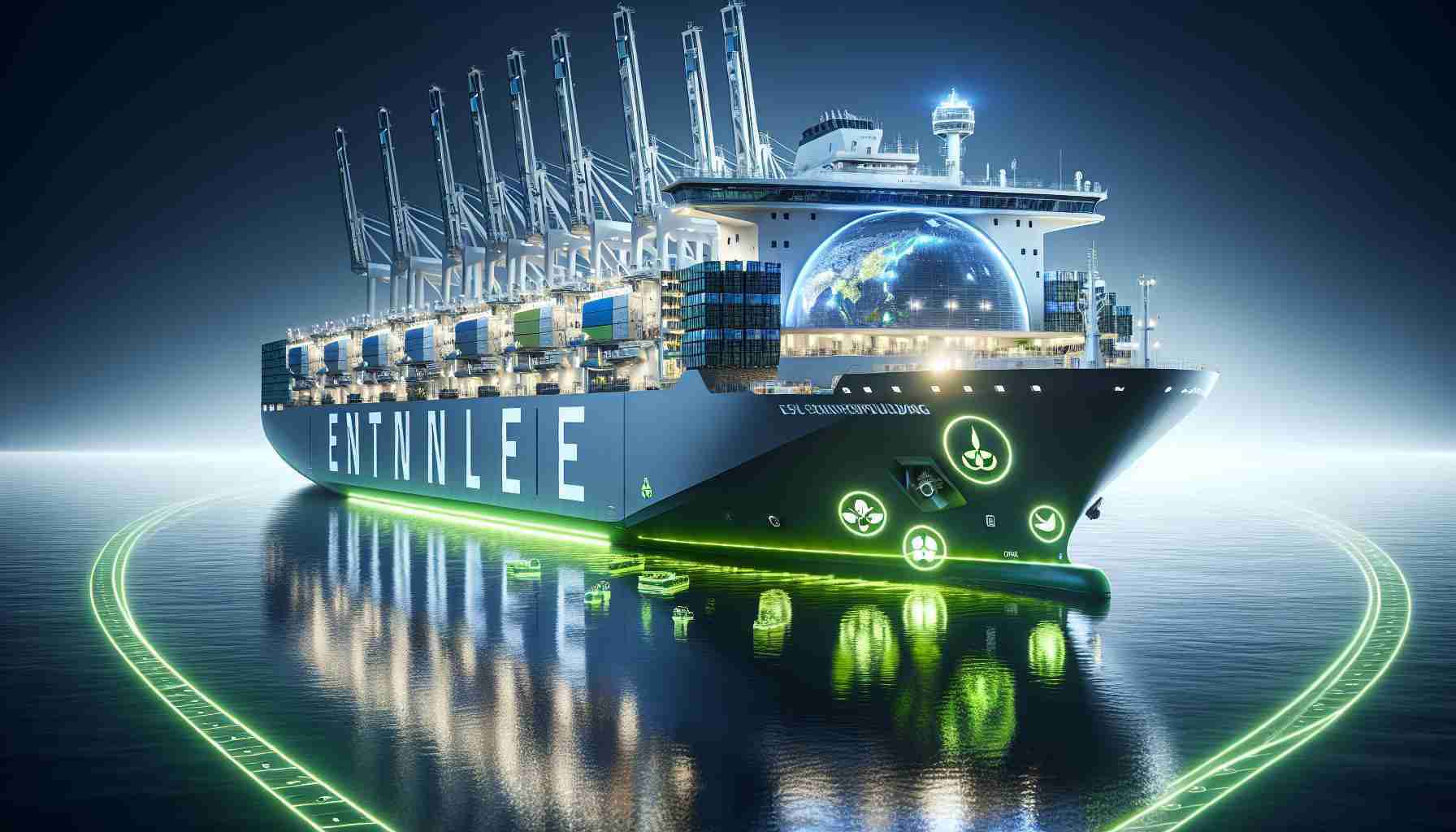Samsung Heavy Industries, the trailblazer in South Korea’s shipbuilding world, has just introduced a cutting-edge fleet designed to meet the rising demand for eco-conscious marine transportation. In a bid to solidify its position in the European market, which is inching towards carbon-neutral maritime solutions, the company has displayed a series of innovative ships and a suite of sophisticated digital technologies focused on sustainability.
In the heart of Athens, the firm conducted a technology seminar to showcase their latest advancements, including a new LNG carrier packed with eco-optimizing features like an air resistance reduction device and a pioneering wind propulsion system. Circling back to the seminar, Samsung Heavy’s CTO highlighted the burning interest and high hopes customers have for the shipbuilder’s green maritime solutions and pledged to forge ahead with their integration of cutting-edge eco-friendly and digital technologies.
The LNG vessel isn’t the only groundbreaking maritime solution rolling out of Samsung’s docks. The company has also engineered an LCO2 carrier replete with its own onboard carbon capture system, setting a new benchmark for sustainability on the high seas. With a keen eye on future developments, Samsung shared its plans for ammonia-fueled carriers using fuel cells, underlining their commitment to green innovation.
Furthermore, Samsung has taken a quantum leap with its digital vessel operation solution. It casts AI-driven deep learning, big data analytics, and digital twin technologies into the maritime domain, ensuring optimal routing for sea journeys. Factor in the DT-SLM system, which not only manages key vessel equipment but also provides predictive maintenance, and you have a blueprint for the future of smart, sustainable shipping.
Relevant to the Topic:
Shipbuilding companies like Samsung Heavy Industries are not only focusing on the development of eco-friendly ships but are also driven by international regulations and the market shift towards sustainable maritime operations. A key factor contributing to this trend is the International Maritime Organization’s (IMO) commitment to reducing greenhouse gas emissions from ships, with a target of reducing total annual GHG emissions by at least 50% by 2050 compared to 2008 levels.
In addition to eco-friendly propulsion like LNG and ammonia-fueled engines, shipbuilders are also exploring improvements in hull design, energy-saving technologies, and the integration of renewable energy sources such as solar and wind power. These technologies include air lubrication systems that reduce frictional resistance and hull cleaning systems that prevent biofouling, which can increase fuel consumption and emissions.
Important Questions and Answers:
Q: What makes these next-gen ships eco-friendly?
A: These ships incorporate advanced technologies to reduce pollutant emissions and enhance fuel efficiency. Features such as LNG propulsion, wind propulsion systems, and onboard carbon capture systems are aimed at minimizing the environmental impact of shipping activities.
Q: How are digital technologies transforming ship operation?
A: Digital technologies like AI, big data analytics, and digital twin models enable smarter navigation, predictive maintenance, and efficient vessel operations, leading to reduced fuel consumption and lower emissions.
Key Challenges and Controversies:
One of the main challenges facing the implementation of eco-friendly shipping technologies is the high initial cost and the current lack of global infrastructure, especially for new fuels like ammonia. Additionally, the maritime industry must overcome technological challenges related to the storage and safe handling of alternative fuels.
Another controversial aspect can be the energy source for the production of these alternative fuels. For LNG and ammonia to be truly eco-friendly, they must be produced using renewable energy sources, otherwise, their overall environmental benefits may be compromised.
Advantages and Disadvantages:
Advantages:
1. Reduced environmental impact due to lower emissions of greenhouse gases and pollutants.
2. Potential long-term cost savings through improved fuel efficiency and reduced regulatory penalties.
3. Enhancement of company reputation and market competitiveness by embracing sustainability.
Disadvantages:
1. High upfront investment for the development and deployment of advanced eco-friendly technologies.
2. Dependency on the availability of alternative fuels and the development of supporting infrastructure.
3. Technological risks and the need for skilled personnel to operate and maintain next-generation ships.
If you’re interested in learning more about Samsung Heavy Industries and their initiatives in eco-friendly shipbuilding, you can visit their main website by following this link: Samsung Heavy Industries.
The source of the article is from the blog myshopsguide.com
